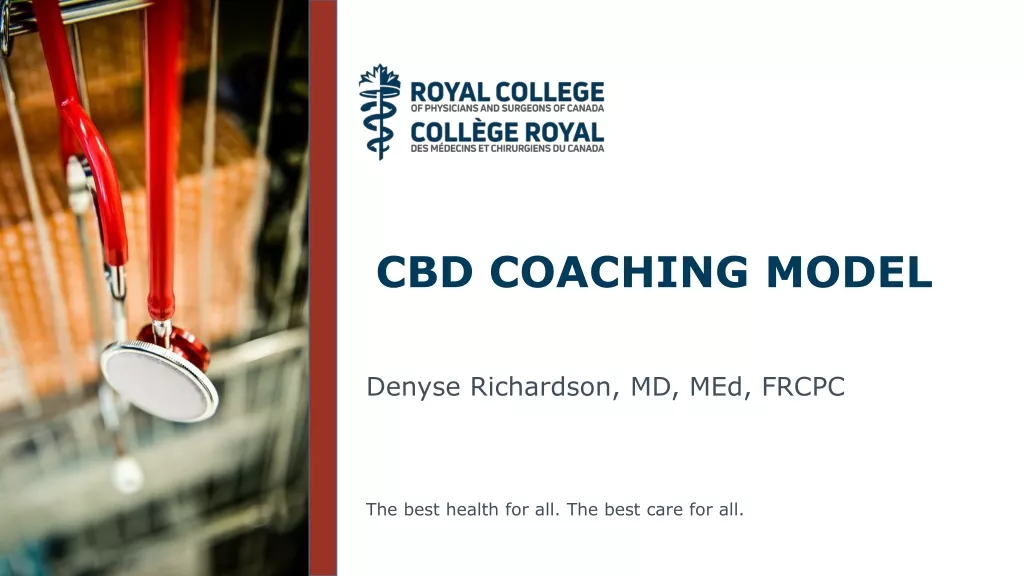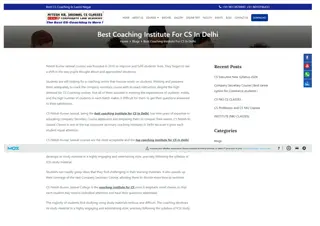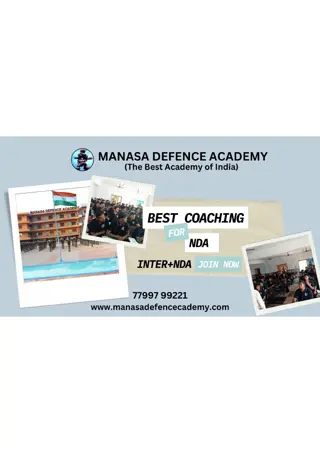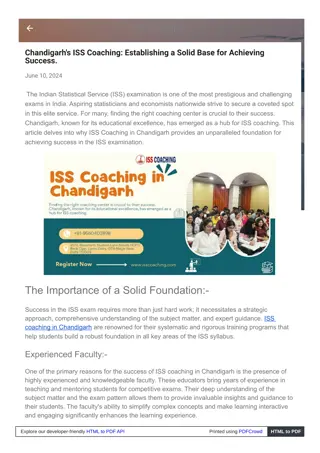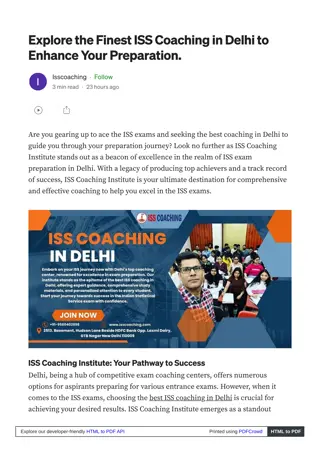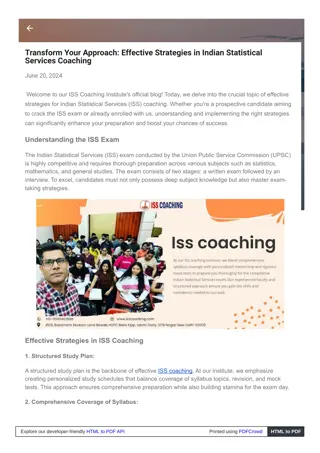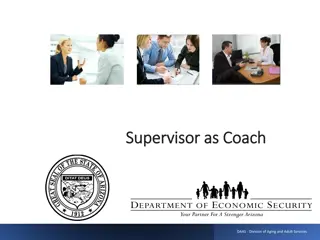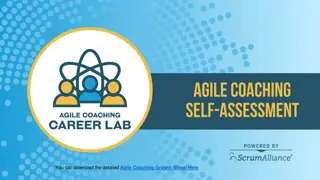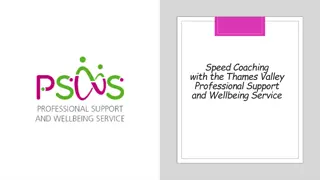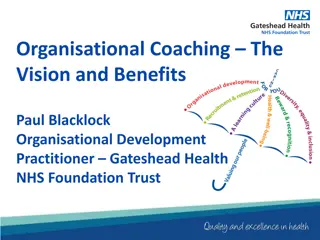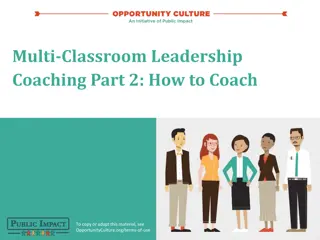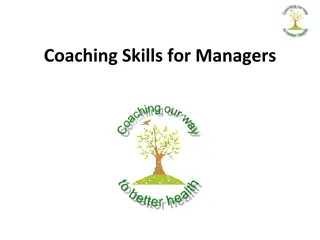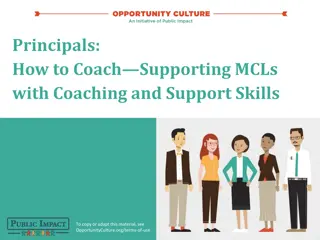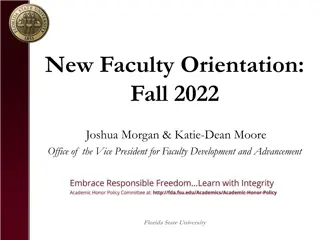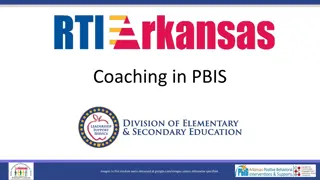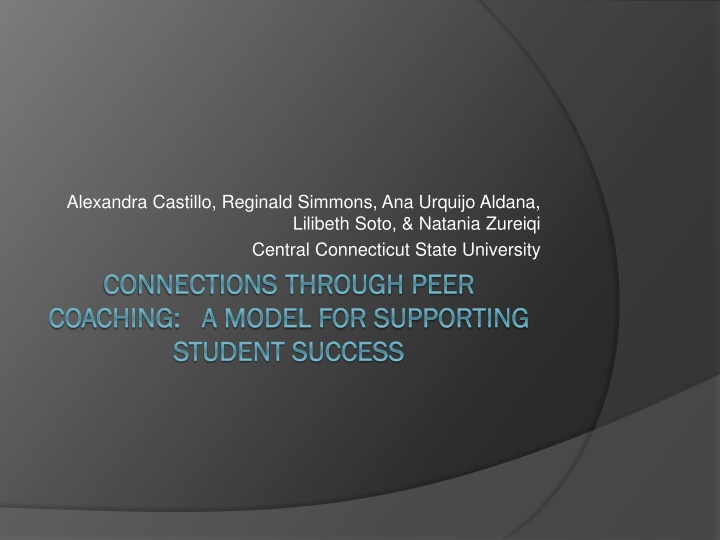
Peer Coaching Model for Student Success at Central Connecticut State University
"Discover how peer coaching at Central Connecticut State University has positively impacted student success through increased graduation rates, academic skills, and confidence. Learn about the mentors, program phases, and benefits to mentees in this effective support system." (Limit: 500 characters)
Download Presentation

Please find below an Image/Link to download the presentation.
The content on the website is provided AS IS for your information and personal use only. It may not be sold, licensed, or shared on other websites without obtaining consent from the author. If you encounter any issues during the download, it is possible that the publisher has removed the file from their server.
You are allowed to download the files provided on this website for personal or commercial use, subject to the condition that they are used lawfully. All files are the property of their respective owners.
The content on the website is provided AS IS for your information and personal use only. It may not be sold, licensed, or shared on other websites without obtaining consent from the author.
E N D
Presentation Transcript
Alexandra Castillo, Reginald Simmons, Ana Urquijo Aldana, Lilibeth Soto, & Natania Zureiqi Central Connecticut State University CONNECTIONS THROUGH PEER COACHING: A MODEL FOR SUPPORTING STUDENT SUCCESS
History of Success Central Why train peer mentors in coaching techniques? The four-year graduation rate of 2014-15 mentees was higher than the university average. Mentees reported increased perception of their academic skills, confidence, and likelihood of graduating from college In 2017-18, increased funding made SC available to all freshmen and sophomores, prioritizing first- generation students
Who Are The Mentors? Junior and seniors of diverse racial, ethnic, major, and geographic backgrounds Chosen mentors have at least a 3.0 grade point average, enthusiasm and many have backgrounds/experiences similar to the mentees (first in family to attend college, jobs or other obligations that conflicted with academics, financial challenges, time- management, study skills, wavering confidence in academic ability, etc...) Mentors are matched to mentees based on some common characteristic
Four Phases of CCSU Success Coaching Phase One: Phase Two: Phase Three: Phase Four: Review outcomes of action steps during the next session Building a Connection Collaboration Reflection Action
How Program Operates Mentors and mentees meet at least bi-weekly Phone and text conversations as needed 30 minute sessions, varies to meet mentee s needs Flexibility Utilize 4 phases during sessions
How Program Operates Up to 12 students assigned to each mentor Session notes Weekly supervision
Benefits to the Mentee: Academic Academic Support Support Utilizing academic resources other students have found useful based on experience Tips and tricks that may have worked for mentors include: o Providing info about on campus tutors & office hours o Organizational Strategies o Efficient Note-taking o Prepping for Exams
Benefits to the Mentee: Academic Support Academic Support Case Example: Mentee A Mentee A felt overwhelmed with transitioning to college. He identified that he wanted to start off college with good grades by addressing his procrastination. Testing various academic resources until we found what worked for him. i.e.: timesheet diary & planner We worked together to map out when he could study and learned time management skills. The student was able achieve his goal of A s and (a couple of) B s.
Benefits to the Mentee: Managing off Managing off- -campus Stressors campus Stressors Balancing family, school, and other potential stressful aspects of college students lives. Case Example: Mentee B Mentee B was able to manage her grades quite well. She chose to focus on minimizing her level of family- related stress, in order to prioritize her education. As a fellow Female Muslim Student, I was able to relate and comfort her because of my own experiences We identified different ways to balance family- related stress as a college student.
Benefits to the Mentee: Campus Involvement Campus Involvement Focusing on the importance of the student s connection to their campus. How? Promoting Club Fairs & Encouraging Campus Events o Recommending specific clubs/events based on the mentees interests Discussing mentors personal experiences with on-campus opportunities o i.e. Internships, work-studies, community work, etc. o o
Benefits to the Mentee: Campus Involvement Campus Involvement Case Example: Mentee C Mentee C is an outstanding student academically and joined the program in hopes to feel more a part of her college community. Because we were both psychology majors, I recommended an on- campus event, Self-Check-in , that emphasizes the importance of mental health She formed many friendships, including her new roommate after visiting campus events, like Self-Check-in. Mentee C is currently in the running to become a mentor this upcoming semester. Has the potential to experience the beneficial aspects of Success Central Initiative from a different perspective.
Benefits to Mentor Becoming a Role Model My mentees understood that I was going through the struggle with them They saw that I finished my four years and went on to graduate I want them to always see that hard work pays off so I make it pay off Accountability Mentees and I have a mutual respect and communicate openly When they set goals I expect them to follow through. I hold myself to the same expectations New Found Passion Through this experience as a mentor I discovered that I love doing this kind of work I love helping young people and plan to continue
Benefits to Mentor Practice What You Preach I tell my mentees things I truly believe and try to practice in my own life Self Care Delayed Gratification Consistency Moments in my life that I find myself forgetting, I remember how much emphasis I put into those small lessons and I re adjust and move forward
Benefits to Mentor Rewarding Experience Mentees show their appreciation differently. Whether it s a grand thank you or not I know that they left our last meeting knowing that I am their mentor even after the year. Knowing I helped students set goals and reach them Best job I ve had in or out of school I want to continue working with young people
Case Highlight A mentee and I connected over similar life experiences. She is currently living with friends and technically homeless. During a brief time in my life I was also displaced and could relate to those emotions. Helping her move forward, helped me come into better terms with things in my past. We met weekly for an hour to discuss challenges she faced and help guide her through solutions. She attended my graduation ceremony and said that being there and watching me walk made her excited for her time.
Thank You! Thank You! For questions, feel free to email Alexandra Castillo For questions, feel free to email Alexandra Castillo at at acastillo81211@gmail.com acastillo81211@gmail.com or Reginald Simmons at Simmons at simmonsred@ccsu.edu simmonsred@ccsu.edu or Reginald

